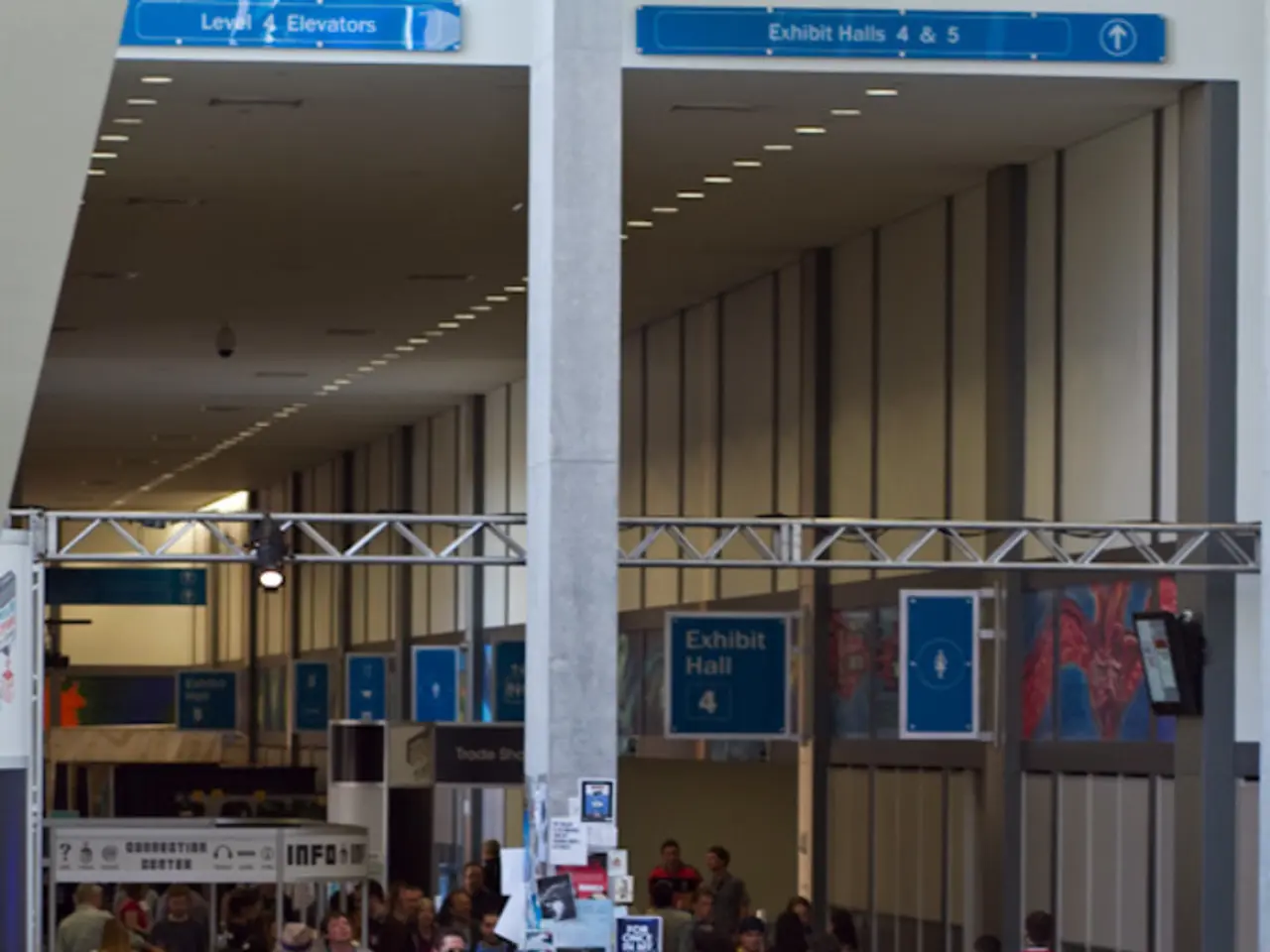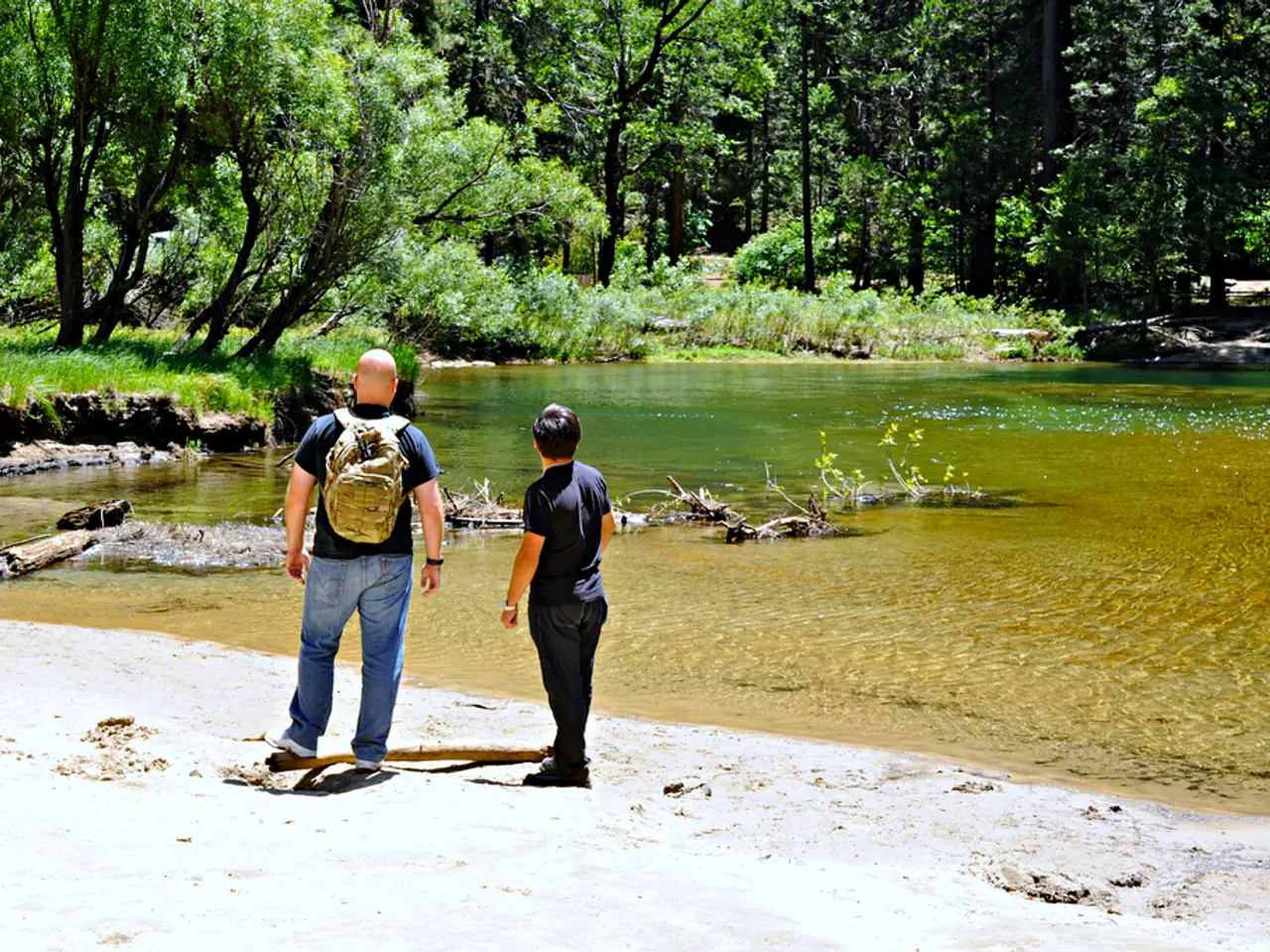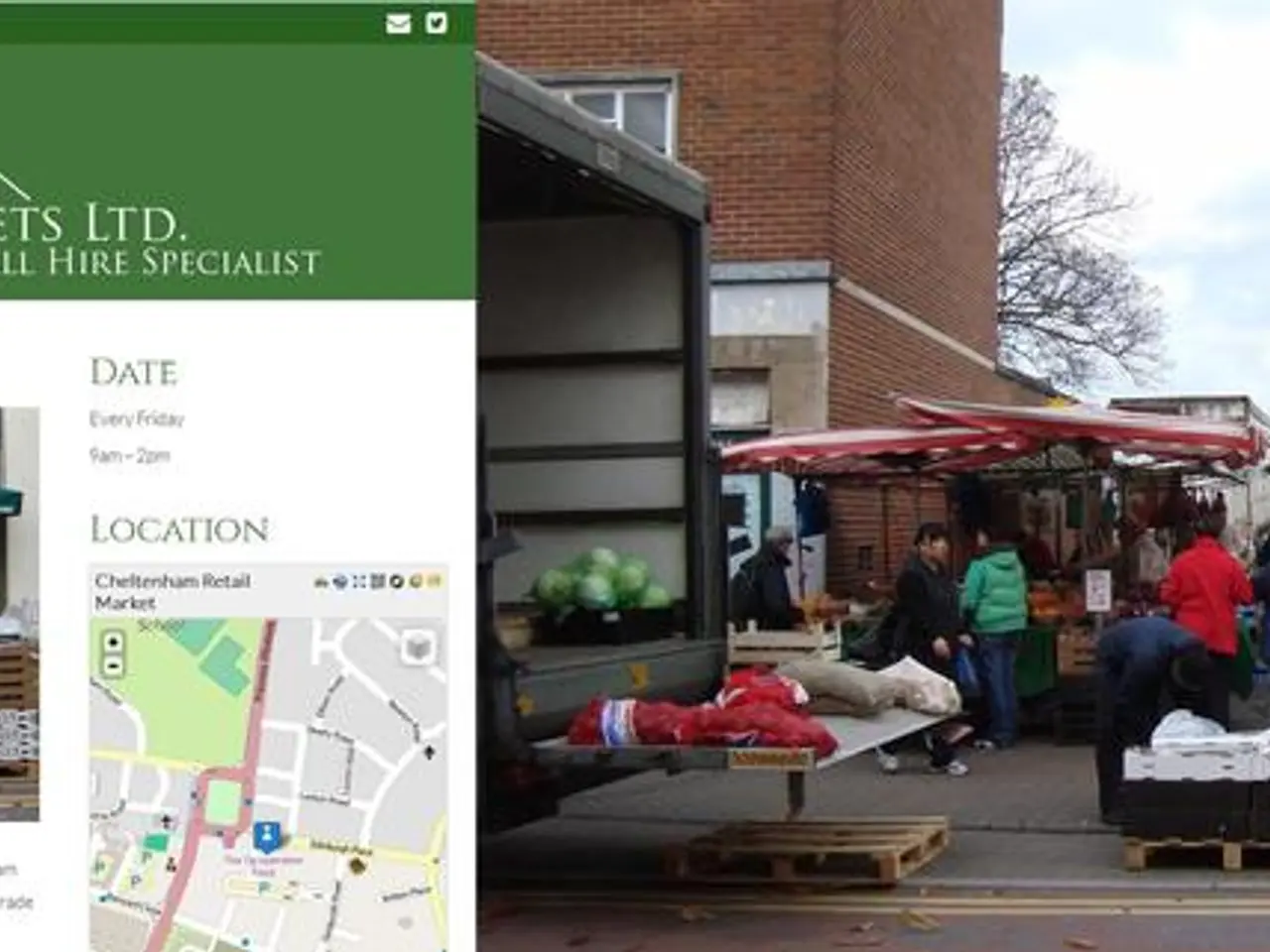Solar panel users frequently experience delays in receiving their earnings for several months - Delay in Solar Plant Owners' Payment Receipt Extends Up to Several Months
In recent times, the surge in solar panel registrations in Germany has created a strain on local grid operators, resulting in delays in feed-in tariff (FiT) compensation. Elke Nicolay of the Saarland Consumer Center has highlighted this issue, stating that delays have been a significant problem for months [1].
Germany now boasts over 107.5 GW of operational solar capacity and over one million balcony solar installations, with registrations for smaller systems doubling within a year [2][1]. This rapid growth has put a considerable impact on grid operators, causing delays in grid approvals and FiT processing.
To tackle this issue, network operators and policymakers need to pursue a combination of process digitalization, legal and regulatory streamlining, and enhanced grid infrastructure and storage capacity [1].
BSW-Solar, a leading solar industry association, recommends urgent implementation of measures to digitalize and streamline grid connection processes to reduce bureaucratic delays [1]. Simplifying administrative steps and automating registration verification can accelerate approval and compensation timelines [3].
Expanding and upgrading grid infrastructure is crucial to handle increased distributed generation. BSW advocates scaling up battery storage capacity significantly—from 20 GWh currently to 100–150 GWh by 2030—to stabilize the grid and optimize renewable integration [1].
Policy measures such as the EU’s Solar Package state aid clearance and building code privileges for battery storage systems are essential to enable faster deployment and integration of PV systems with energy storage [1]. Removing landlord permission requirements for small balcony systems also contributed to faster growth and simplified implementation [2].
Providing consumers and installers with clearer, step-by-step guidance for feed-in tariff applications and grid connection requirements, plus leveraging installers and consultants to manage submissions, can reduce errors and delays [3].
Pfalzwerke Netz AG, a Ludwigshafen network operator, is experiencing delays in processing applications for feed-in compensation due to the high volume of new solar panel registrations [4]. Pfalzwerke has taken measures to optimize processes and increase staff to address the high volume, but delays cannot be completely ruled out [4].
The core problem in many cases is the need to clarify respective responsibilities, particularly with complete solar panel packages [4]. The geopolitical situation and political measures to expand renewable energies have contributed to this development.
Owners of solar panels in other federal states are also facing issues with their feed-in compensation, as shown in a survey of consumer centers [1]. The Consumer Center observes that the "black sheep" is often passed back and forth between the provider and the network operator [1].
The final new values for feed-in compensation rates will be published by the Federal Network Agency on August 1st, and it is expected that problems with feed-in compensation will decrease by one percent from this date [5]. However, the ongoing challenge remains to ensure a smooth and timely process for all solar panel owners in Germany.
References:
[1] BSW-Solar. (2022). Solar-Sector Digitalization: Digitalization and Streamlining of Grid Connection Processes. Retrieved from https://www.bsw-solar.de/de/aktuelles/news/solar-sektor-digitalisierung-digitalisierung-und-streamlining-von-netzanschlussprozessen/
[2] Bundesverband Solarwirtschaft. (2022). Solar in Deutschland 2022: Solar-Sektoren-Digitalisierung. Retrieved from https://www.solarwirtschaft.de/solar-in-deutschland-2022/solar-sektoren-digitalisierung/
[3] Bundesverband Solarwirtschaft. (2021). Solar in Deutschland 2021: Solar-Sektoren-Digitalisierung. Retrieved from https://www.solarwirtschaft.de/solar-in-deutschland-2021/solar-sektoren-digitalisierung/
[4] Pfalzwerke. (2022). Solaranlagen: Pfalzwerke muss mit hohen Anmeldungen rechnen. Retrieved from https://www.pfalzwerke.de/news/solaranlagen-pfalzwerke-muess-mit-hohen-anmeldungen-rechnen-10913
[5] Bundesnetzagentur. (2022). Neue Festsetzungen für die Erneuerbare-Energien-Vergütung ab dem 1. August 2022. Retrieved from https://www.bundesnetzagentur.de/en/topics/electricity/remuneration-for-renewable-energy/new-settlements-for-the-renewable-energy-remuneration-as-of-1-august-2022
- To address the issues of delays in feed-in tariff compensation, Germany's policymakers and network operators should focus on enhancing digitalization and streamlining processes in vocational training related to solar integration and grid connection, as suggested by BSW-Solar [1].
- With the rise of renewable energy, industry experts predict that environmental-science and climate-change researchers will play a significant role in developing sustainable solutions for this growing sector [6].
- In addition, financial institutions are starting to invest in renewable energy solutions, as there is potential for new revenue streams in the form of clean energy projects [7].
- As Germany aims to increase its renewable energy capacity, it is essential to sustain a strong community policy that ensures the quality and safety of solar installations to protect the environment and preserve consumer interests [8].




